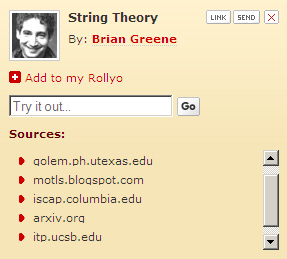Web 2.0 launchpad roundup


Flock tooks the wraps off its open source, social networking browser based on Firefox code. CEO Bart Decrem said the first public release will come out in about a week. "We are focusing on favorites and history and how to drag them into the modern era in our initial relaease and on integrating blogging into browsing," Decrem said. Flock's browser includes unique interface elements, such as a "top bar" for the blogging tool and for displaying Flickr photos, for example. Flock appears to be one of the new Web 2.0 (advancing beyond the current browser and Web page model) that will create some waves. (See Rob Hof's post on Flock.)
Zimbra, which I have written about here, demoed its calendar/e-mail application, and Joyent introduced its Web-based e-mail/calendar small group collaboration application, with tagging and open APIs. Between the two Zimbra is the most impressive.
Ross Mayfield of Socialtext announced that he is gradually moving his company's Wiki unique code (which is built on an open source foundation) into the open source arena, starting with real-time and asynchronous editing. "Collaboration is not something we or anyone should monopolize," Mayfield said. He also said that Web 2.0 is about people and building a community, and communities provide a way to minimize the cost of sales and marketing in building a business. About 20 percent of SocialText's code is open sourced today, but that will rise to 80 percent Q1 2006. Mayfield demoed SocialText's Wikiwyg tool, which is being open-sourced. Socialtext is a little bit late to the open source party, but Mayfield is a force and will be one of the leaders pushing open source and hybrid (open source and some closed source) business models.
zvents showed off a local event/calendar and fully Web 2.0--RSS, REST, SOAP, ,XML-RPC, iCal and blogging widgets for embedding event data in a blog or Web site--according to CEO Ethan Stock. Yahoo just acquired Upcoming.org, which lets users manage and share their social calendar and syndicate event calendars to their own sites.
KnowNow demoed an continous live RSS notification service for consumers and enterprises. KnowNow doesn't require an RSS reader and is free for personal use. AllPeers 2.0, which works within the Firefox Web browser, claims to "assist in the creation of so-called Web 2.0 applications: software that exploits new trends such as social networking, self-publishing and client-centric computing." Forget the buzzwords--it's peer-to-peer application for tagging, annotating and sharing media files and Web pages.